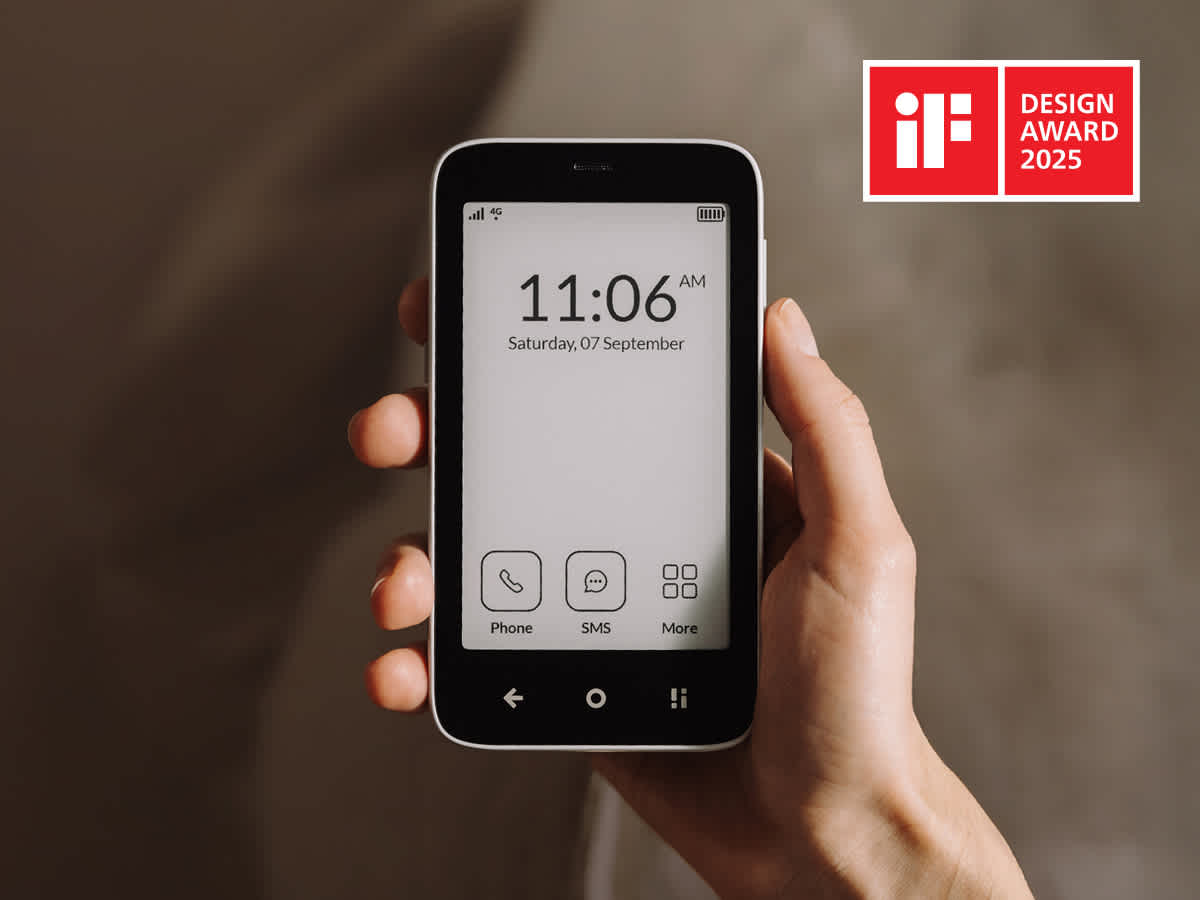Fairphone announces the €599 Fairphone 6, with a 6.31" 120Hz LTPO OLED display, a Snapdragon 7s Gen 3 chip, and enhanced modularity with 12 swappable parts
-
I don't think that's true in the slightest. A phone 2.1" smaller in diagonal length than my current one would be smaller than a Nokia 3310.
Yes but the phone physically cannot be smaller than the screen.
So if the screen itself is too large to be comfortable, it is physically impossible to make it comfortable to use without making the screen smaller.
I measured the radius my thumb can reach, I know exactly the limits of my reach, and thus exactly the largest screen I can use without causing discomfort in my wrist.
The point I am trying to make is that the ideal phone size is personal to the individual. There is no one size fits all. Screen to body ratio cannot change that.
This is why, despite the screen to body ratio improving, a subset of people still ask for smaller phones.
-
If I've asked a question twice and you've danced around it both times, that tells everyone what your answer is.
someone who is often listening to music with their phone and wired headphones, or even just when arriving at home from work, is going to use both the charger and the jack at the same time frequently.
another scenario is if the person uses their phone as the microphone for their PC.
you can argue that both must be rare because you have never seen them done, that's my exact opinion about wireless charging
-
“It's not in front of my face, so it doesn't exists!”
That's literally the thinking abilities of a toddler. Wireless chargers sell like hotcakes. MagSafe charger is Apple's most popular accessory in their entire history.
that's the same thinking that those apply who say people don't need jack connectors, mind you
-
someone who is often listening to music with their phone and wired headphones, or even just when arriving at home from work, is going to use both the charger and the jack at the same time frequently.
another scenario is if the person uses their phone as the microphone for their PC.
you can argue that both must be rare because you have never seen them done, that's my exact opinion about wireless charging
Funny you bring up wireless charging.
Does that not solve your proposed problem? You can use a usb-c to audio dongle, which often comes with better sound quality than a phones DAC, and wirelessly charge, even via many powerbanks. These are features found fairly commonly in today's phones, so problem solved?
-
Funny you bring up wireless charging.
Does that not solve your proposed problem? You can use a usb-c to audio dongle, which often comes with better sound quality than a phones DAC, and wirelessly charge, even via many powerbanks. These are features found fairly commonly in today's phones, so problem solved?
it does not, as my phone, and afaik most phones don't support it.
-
it does not, as my phone, and afaik most phones don't support it.
Sounds like a you problem, I have it on good authority that it's pretty common:
how many times does the average person use wireless charging? Seriously, I haven't seen anyone do that yet, or know of someone who uses that.
and yet that's still a major feature in lots of phones
You've shown everyone that you can, in fact, listen to wired headphones and charge at the same time with "major features found in lots of phones", which solves your original complaint, which itself depends on some very specific scenarios.
-
how else are you supposed to connect it to cars that weren't made yesterday?
Cars have had bluetooth and usb on their radios for almost 20 years. Even older than that you can replace the stereo for like $30. My car is 2004 and i did a stereo replacement and i've got bluetooth, usb C and aux.
-
There's a deGoogled version too!!
I would prefer GrapheneOS (If I can live with the irony of getting a Pixel phone just to deGoogle it...). Sandboxing there is way better. But you lose the Repairability.. Gotta check and compare the new EU metrics too.
They are just two different devices.
Just an update, I learnt that GrapheneOS developers are 'aggressive' towards other FLOSS projects (following comments on other thread, but you can searx grepheneos+controversy and see for yourselves).
So now, I might just prefer an FP6.
-
Yes but the phone physically cannot be smaller than the screen.
So if the screen itself is too large to be comfortable, it is physically impossible to make it comfortable to use without making the screen smaller.
I measured the radius my thumb can reach, I know exactly the limits of my reach, and thus exactly the largest screen I can use without causing discomfort in my wrist.
The point I am trying to make is that the ideal phone size is personal to the individual. There is no one size fits all. Screen to body ratio cannot change that.
This is why, despite the screen to body ratio improving, a subset of people still ask for smaller phones.
Ok so you think that the old 4" screen phones should actually have been sub 2". That seems excessively small to me.
-
Ok so you think that the old 4" screen phones should actually have been sub 2". That seems excessively small to me.
That is not at all what I am saying.






